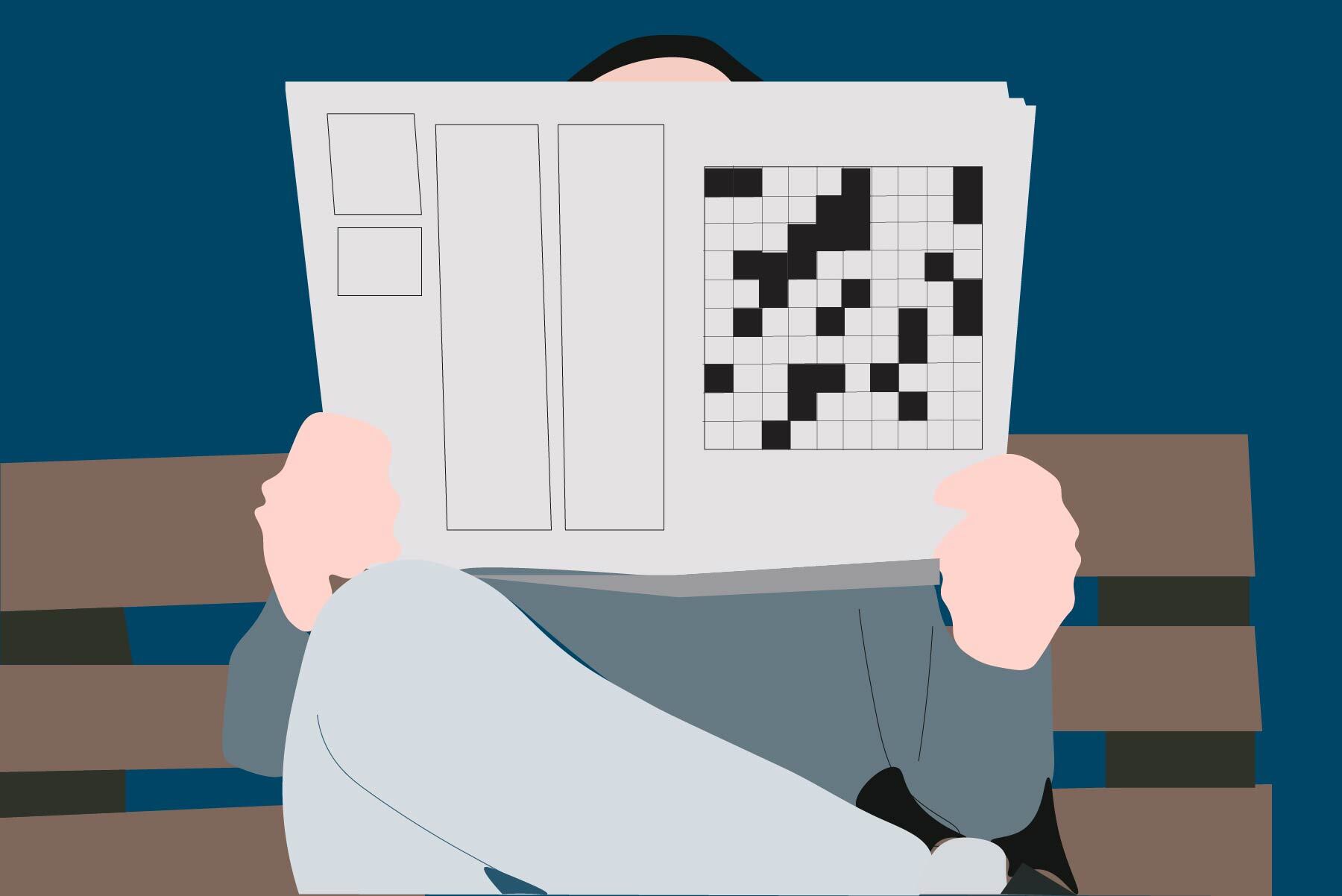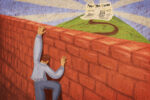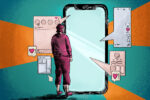Cutting back on screen time is a fantastic goal — but it’s not an easy one to achieve. Cell phone addiction is real, it’s everywhere, and it’s all-consuming, often leaving users with a case of mushy brains. Many a day is spent mindlessly perusing games, videos and filtered photos.
Rather than abstaining from electronics use altogether, however, it might be time to change the apps you use and the ways you use them. When used well, devices provide both awareness and the means to spread it — two assets that can make us much more informed citizens.
One app in particular may change the way you feel after using your screens. The NY Times Crossword app will not leave you with brain mush, but instead with an invigorated mind that is conditioned to take on more consequential life decisions.
Tolerance for Error
It’s tough to be wrong. It’s tougher to admit to being wrong. If you do the NY Times Crossword, you are bound to make mistakes — often. Early on, it’s difficult to let go of a word that both suits the clue perfectly and fits into the available boxes, especially when the word is confidently scrawled onto a hard copy in pen (one reason the digital version of the NY Times Crossword is superior).
It becomes immediately clear, however, that discarding answers is necessary for success. Each letter is shared by two words, so if one word is incorrect, its letters will prevent you from finding the words around it. With practice, mistakes become less of a problem. No, they do not go away, but you’ll learn your instincts are not always right, and you’ll benefit from accepting when they’re wrong.
The crossword is a game, and whether you complete the game or fail to do so yields neither prize nor punishment. Yet for beginners, there tends to be an innate aversion to risk-taking, which fades as changing answers becomes normalized. The crossword is a small-scale analogy for more substantial life decisions, those in which mistakes must be fixed to achieve bigger goals.
There is comfort in sticking to solutions that worked in the past, but once new factors come into play, finding a new solution is imperative. The willingness to adjust when wrong overtakes the fear of making mistakes, and error-induced hesitancy recedes as flexibility and speed kick in.
Confidence Boost
As you become more decisive and willing to take risks, you improve. Solving crosswords gets easier each day. Each puzzle stretches your vocabulary, reinforces your knowledge of pop culture and history, and heightens your ability to identify patterns in the clues, including different tenses and punctuation marks.
Verb answers tend to match the tenses of their corresponding clues. When followed by a question mark, a clue is likely hinting at some form of wordplay. You pick up on these clues within clues with practice and tricky answers start to come to you without delay. Soon the goal of the crossword becomes more than just finishing; it is a race against the clock or another crossword regular.
Leaving a puzzle unfinished is an outrage you can and must avoid at all costs. No longer are answers uncertain, weighty decisions; they are extensions of your momentum and a commitment to succeed. You learn answers as you fill in the blanks to others, feeling increasingly powerful as you internalize new words and concepts. Unlike most fruitless iOS games, finishing a crossword culminates in lasting feelings of accomplishment and intellectual confidence, thanks in part to the celebratory jingle that rings out upon the completion of each puzzle.
Enthusiasm for Team Work
Before you go and pay the $39.95 annual subscription fee, consider this: I have yet to subscribe to the NY Times Crossword. I rely on my brother’s subscription for my daily crossword fix. Sharing an account with my family, though inconvenient at times, has proven highly beneficial for all of us.
For one, we save money. Although it would be nice to have the crossword archive available at my fingertips at all times, it makes little sense to buy multiple accounts when we are all living under one roof.
Secondly, my itch to solve the daily puzzle drives me to spend time with my family members, all of whom have developed a similar love for crosswords during the COVID-19 pandemic. Working with others expands the range of intelligence up against the puzzle considerably. My dad’s scope of competence, for example, varies heavily from mine, which is why we work well together. Completing crosswords with other people creates a space for the fusion of our unique perspectives, and thus an opportunity to learn from each other.
Working in groups makes solving crosswords a great deal easier — though some competitive crossworders might call it cheating. Take that as you will; in my eyes, if you are competing in a one-on-one crossword contest, group work would be cheating. When sitting on the couch using my brother’s iPad, however, there’s no problem making the crossword a group project that leaves everyone feeling they have built something together.
It also feels far more rewarding and less fraudulent than Googling unknown answers. Regardless, even if working with others to complete the crossword is a decision made to save money, it is an expedient decision and enjoyable routine that should be considered whether or not you have a subscription.
Too much screen time is associated with many ills and should be monitored, but it does not have to be a vice. Modern devices can be a means for skill development, including adaptability and pop culture proficiency.
Using this app exercises important life skills, builds self-esteem and gives you an excuse to spend time with those you love. Find out if any of your friends are subscribed; if they do, the “share screen” feature on Zoom enables efficient long-distance cooperation; if they don’t, a subscription to the NY Times Crossword could make for a good birthday present.
















